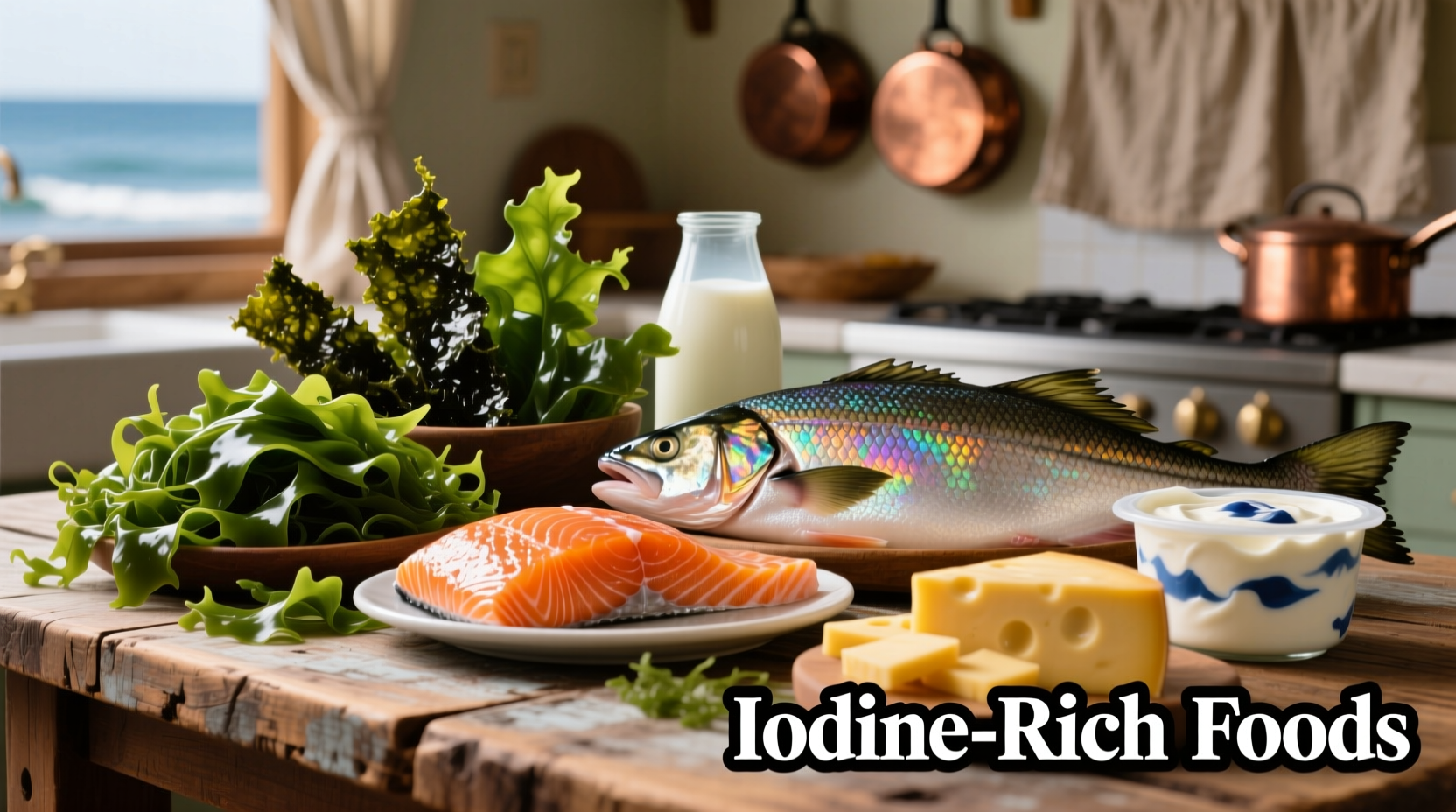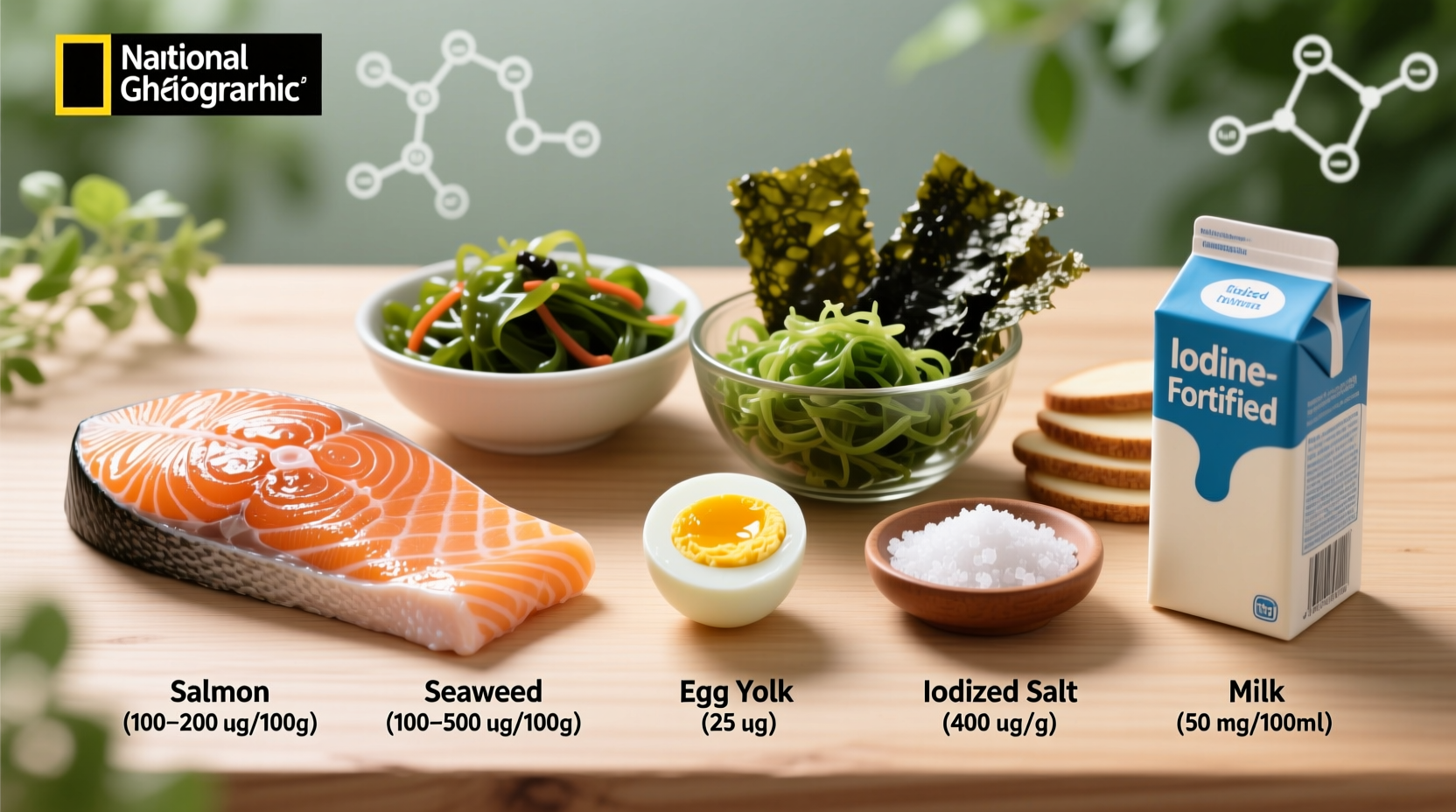Why Your Body Needs Iodine Daily
Iodine powers your thyroid gland to produce hormones regulating metabolism, brain development, and energy levels. Without adequate intake, you risk fatigue, weight gain, and cognitive issues. The National Institutes of Health confirms that 150 micrograms (mcg) daily maintains optimal function for most adults, with higher needs during pregnancy (220 mcg) and breastfeeding (290 mcg). Unlike some nutrients, your body can't store iodine long-term—making consistent dietary intake essential.
Top 10 Iodine-Rich Foods Ranked by Science
USDA FoodData Central data reveals these foods deliver the most reliable iodine doses. Note: Seaweed content varies dramatically by species and origin—always check labels.
| Food Source | Serving Size | Iodine (mcg) | % Daily Value |
|---|---|---|---|
| Roasted nori seaweed | 1 sheet (2.5g) | 100-200 | 67-133% |
| Cod | 3 oz (85g) | 99 | 66% |
| Shrimp | 3 oz (85g) | 35 | 23% |
| Plain yogurt | 1 cup (245g) | 75 | 50% |
| Iodized table salt | 1/4 tsp (1.5g) | 71 | 47% |

Key Context Boundaries Affecting Iodine Levels
Not all "iodine-rich" foods deliver consistent amounts. These critical factors impact actual intake:
- Soil dependency: Dairy and grain iodine levels drop 50-90% in regions with iodine-poor soil (per WHO soil mapping data)
- Seaweed variability: Kelp may contain 2,000 mcg per gram—13x the safe limit—while some nori has negligible amounts (NIH reports)
- Processing effects: Non-iodized sea salt and Himalayan salt contain virtually zero iodine despite "natural" claims
Practical Daily Iodine Strategies
Integrate these evidence-based approaches into your routine:
- Seaweed smartly: Add one nori sheet to miso soup (provides full daily needs without overdose risk)
- Dairy boost: Choose plain yogurt over flavored versions—added sugars reduce nutrient density by 30% (USDA analysis)
- Fish rotation: Alternate cod with shrimp twice weekly to avoid mercury buildup while maintaining iodine intake
- Smart salt use: Replace 50% of table salt with iodized version in cooking—preserves flavor while adding 71 mcg per 1/4 tsp
When Food Isn't Enough: Critical Exceptions
Consult your physician before considering supplements if you:
- Follow strict vegan diets without seaweed (plant foods provide minimal iodine)
- Have thyroid disorders like Hashimoto's (excess iodine worsens symptoms)
- Live in iodine-deficient regions like the Great Lakes area (per CDC soil surveys)
Never self-prescribe iodine supplements—doses over 1,100 mcg daily may trigger thyroid dysfunction according to Endocrine Society guidelines.











 浙公网安备
33010002000092号
浙公网安备
33010002000092号 浙B2-20120091-4
浙B2-20120091-4